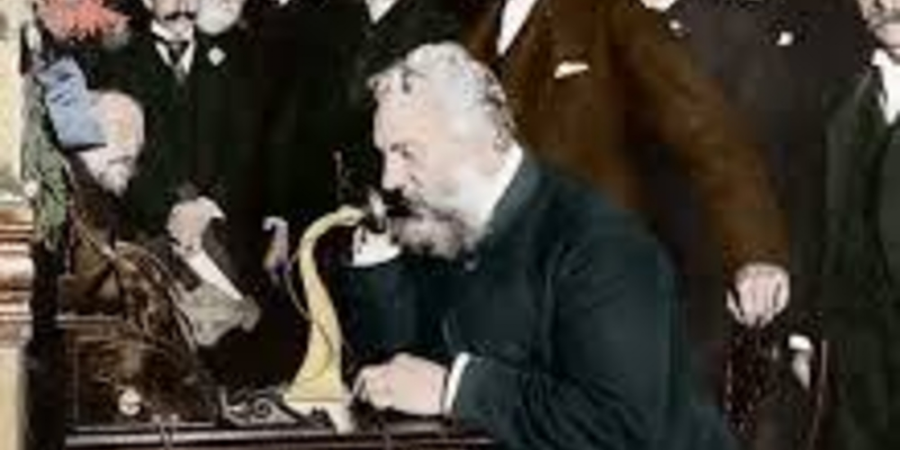

The first telephone call made in 1876 by Alexander Graham Bell revolutionized the way humans communicate, setting the stage for global connectivity. The telephone has since evolved into one of the most important technological advances in human history, but the first call itself was the culmination of years of work, experiments, and rivalries. Here’s a detailed look at the history behind this landmark event.
Before the telephone, methods of long-distance communication were limited to written messages or the telegraph, which transmitted coded signals over wires. The idea of transmitting voice, however, was a much greater challenge. The key breakthrough came from the understanding of converting sound into electrical signals, a process that had not yet been achieved.
Elisha Gray’s Work: Elisha Gray, an American electrical engineer, was conducting similar research at the same time as Bell. His work focused on the idea of using a liquid transmitter to convert sound vibrations into electrical signals. However, his patent application for the device was filed on February 14, 1876, just a few hours after Bell’s submission, sparking a legal dispute that would later be resolved in Bell's favor.
Bell’s Focus on Voice Transmission: Alexander Graham Bell, a Scottish-born scientist and inventor, was already interested in speech and sound. His primary goal was to develop a device that could transmit human voice. Bell’s work was based on earlier innovations in telegraphy and sound recording. His understanding of the vibratory nature of sound and his studies on the human vocal apparatus led him to experiment with transmitting sound via electrical signals.
The first successful telephone call took place in Boston, Massachusetts, on the afternoon of March 10, 1876. Alexander Graham Bell, while working in his laboratory, had been experimenting with a device that could convert the sound of a human voice into electrical signals that could be transmitted through a wire. After several attempts, Bell reached a moment of breakthrough.
At around 10:30 AM, Bell made the first telephone call to his assistant, Thomas Watson, who was working in another room. Bell had been facing difficulties with his experiments, but in a moment of urgency, Bell shouted:
"Mr. Watson, come here, I want to see you."
To his amazement, Watson, who was in another room, heard the words clearly through the wire. This was the first successful transmission of clear, audible speech via electrical signals.
Bell’s invention was based on the principle of converting sound waves into electrical signals, using a device called the electromagnetic transmitter. This device worked by using the vibrations of a diaphragm to create electrical signals corresponding to the sound. These signals were then sent through a wire to another device, a receiver, which converted the electrical signals back into sound. While rudimentary by modern standards, this was the foundational technology that would eventually lead to the development of the telephone.
After the successful transmission, Bell was quick to file for a patent on his invention. On February 14, 1876, just before Bell's successful demonstration, Elisha Gray filed his own patent application for a similar invention. This led to one of the most famous patent disputes in history.
The Patent War: Bell’s patent was filed first, although his application was received a few hours before Gray's. The issue was further complicated because both inventors were working on similar concepts at the same time. This legal battle over the telephone patent lasted for several years, and Bell ultimately won the rights to the patent. This decision cemented Bell’s place in history as the inventor of the telephone.
Invention of the Telephone vs. the Telegraph: Bell's success with the telephone also marked the end of the era of the telegraph as the primary long-distance communication tool. The telegraph, though revolutionary in its time, was limited to sending coded messages (Morse code) rather than voice. Bell’s invention marked the first true step toward voice-based communication.
After the first telephone call, Bell and his associates worked tirelessly to improve the device. By July 1877, the Bell Telephone Company was established, and the first public telephone exchange opened in New Haven, Connecticut in 1878. The first commercial telephone service in the United States began in 1880, initially linking cities like New York and Boston.
The development of telephone lines and exchanges grew rapidly. Within a decade, telephone networks were established in Europe, and by the end of the 19th century, telephone services began to spread globally. The telephone brought an entirely new dimension to communication, allowing for instantaneous, personal conversations over long distances—a stark contrast to the delayed, impersonal nature of written communication.
Global Communication Revolution: The first telephone call by Alexander Graham Bell sparked a wave of innovation, leading to the development of the global telecommunications network. The telephone became a cornerstone of modern communication, and over time, its influence expanded into the creation of the internet, mobile phones, and wireless communication technologies that continue to evolve today.
Cultural Impact: The telephone fundamentally altered the way people interacted with each other. It bridged vast geographical distances and allowed for real-time, personal communication. Over the decades, it became a vital tool for business, government, and personal relationships.
Bell's Recognition: Alexander Graham Bell’s role in inventing the telephone has been celebrated worldwide, and he received numerous honors and accolades for his groundbreaking work. While the debate over the true inventor of the telephone continues (with some crediting others like Elisha Gray or Antonio Meucci), Bell's place in history as the inventor is firmly established.
The first telephone call in 1876 was not just a technical achievement; it marked the beginning of a new era in human communication. What started as a basic experiment with transmitting sound became a catalyst for a worldwide revolution that has connected billions of people across the globe. Alexander Graham Bell’s telephone call has had a lasting impact, shaping the way people communicate even to this day.
The legacy of Bell's invention reminds us of the power of innovation and how a single breakthrough can change the course of history.
